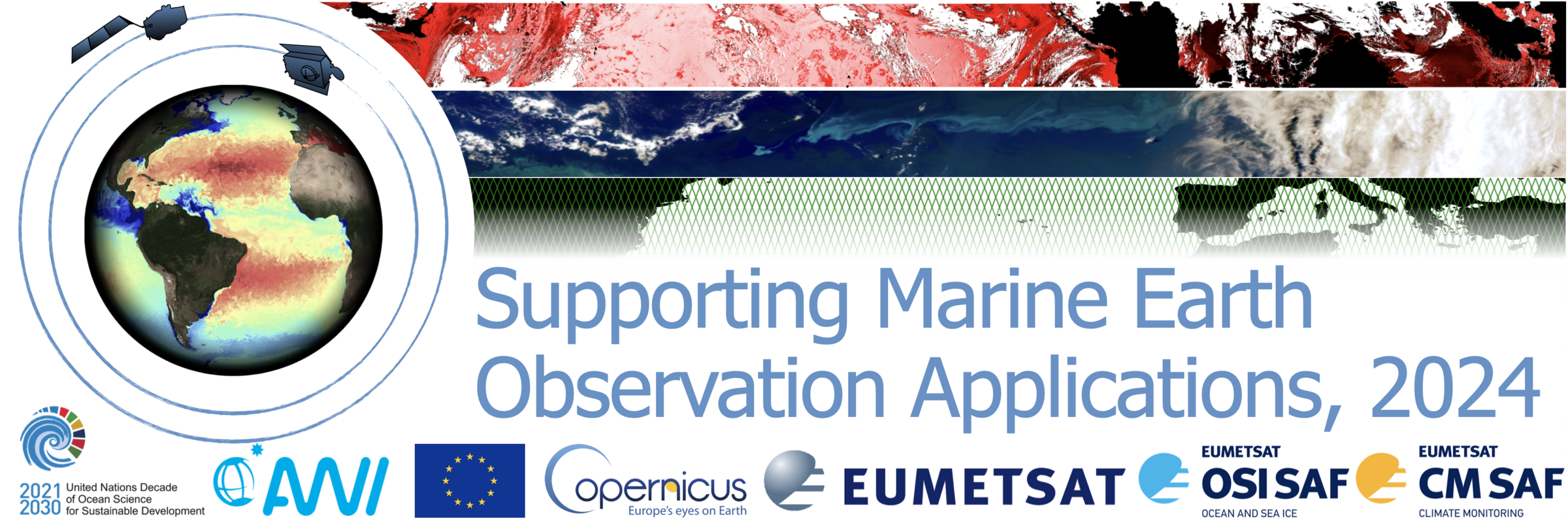Apply for Courses
Lista de tópicos
-
In order to apply for most of the courses listed below you must be registered & logged in on this platform. Go to Log in (top right side) to log in or create an account.
Then select the course you are interested in, fill in the application form & submit it. You will be contacted as soon as the selection of candidates is completed.
For a comprehensive list of all our training, check out the calendar.
How to apply for a short course
-

In early 2024 EUMETSAT will convene the next iteration of the “Supporting Marine Earth Observation Applications (SMA)” course, introducing you to our marine data catalogue and helping you develop workflows that support your own application-specific goals. If you wish to learn about, or work more extensively with, our ocean colour, sea surface temperature, altimetry, sea ice and/or wind data, then we encourage you to apply. This year, the course will be delivered in partnership with the Alfred Wegener Institute for Polar and Marine Research (AWI). We particularly encourage applicants working in the mid- and high-latitudes, where AWI have extensive experience with both in situ and satellite oceanography.
During this course you will learn how to independently access and process data from the EUMETSAT product catalogue for your marine workflows and applications. The focus will be on data streams from EUMETSAT Copernicus marine missions (Sentinel-3; Sentinel-6) and derived downstream products, those derived from Copernicus supporting missions, and those made available by the Ocean and Sea-Ice (OSI SAF) and Climate Monitoring Satellite Application Facility (CM SAF).
Training will take place entirely online and through two phases, which will be support by experts in the relevant fields;
The first, self-paced phase will take place between 26 February and 15 March 2024 and will take approximately 9-15 hours in total to complete. It will involve self-paced flexible learning through webinars, forums and technical checks (particularly for software installations), documentation and assignments.
The second, virtual classroom phase will be take place between 18 March and 22 March 2024 using Zoom and other collaborative tools. This phase will be made up of interactive tutorials, live demos, group work, and 1:1 meetings. During this intensive week, which will require 5-8 hours of participation each day, we will focus on co-creating a mini-project directly relevant to your application of interest.
During the course, you will;
- Learn about the specifics of the marine products that EUMETSAT provides (variables, timeliness, resolution, data formats) Select appropriate products from the EUMETSAT marine catalogue and access them using GUI-based and automated services
- Use relevant software tools, such as SNAP, and scripting languages, such as Python, to acquire, visualise and process Earth observation data from multiple sources
- Work with trainers to design workflows around these products and tools, tailoring approaches to the specific needs of a participant-defined application
Applications for this course are now closed.